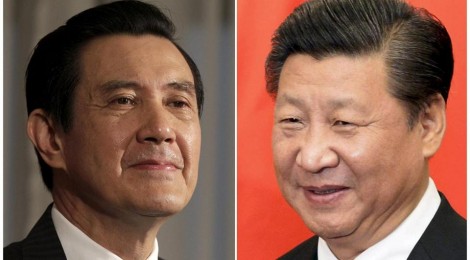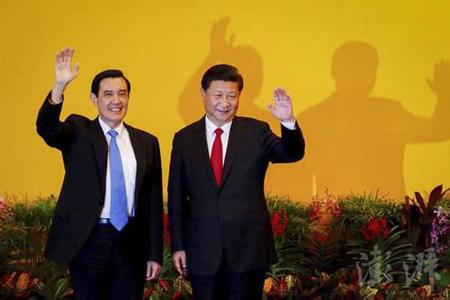
Cross-strait Relations: An historic meeting to be held on Saturday
Every China observer will be watching closely the meeting awaited for November 7th: for the first time in history China’s President and Taiwan’s President will travel to Singapore for bilateral talks. This historic meeting it’s a huge breakthrough for cross-strait relations: the leaders of the Republic of China (Taiwan) and the People’s Republic of China (PRC) have never met since the PRC was founded in 1949 and the Chinese Nationalists of the Kuomintang retreated across the Taiwan Strait.
A first tepid approach between the two countries – which claim to govern the same territory – was reached with the 1992 consensus, that states there is one China, while remaining ambiguous on which government represents it. This consensus has never been accepted by Taiwan’s Democratic Progressive Party (DPP), now at the opposition, which has always stressed a distinct Taiwanese identity.
The office in charge of Taiwan relations in Beijing – Mainland Affairs Council (MAC) – said that the two leaders will exchange views on promoting development. The director of the Taiwan Affairs Office (TAO) in mainland China, Zhang Zhijun, said the meeting had been arranged “given the situation of the irresolution of cross-strait political differences.”
 The two presidents will stay at the Shangri-La Hotel in Singapore, a country that has good relations with both sides. After shaking hands and delivering opening remarks before the press, Xi Jinping and Ma Ying-jeou will head off to closed door discussions, which, according to both sides, will “concentrate their energy on exchanging views on some important issues.” After the talks, they will hold separate press conferences and then head to a banquet; then President Ma will depart Singapore immediately. The two leaders will address each other as “Mr”, to avoid acknowledge the other as a president and legitimizing the respective government, and will split the cost for the dinner and the venue, to avoid the perception that one is hosting the other.
The two presidents will stay at the Shangri-La Hotel in Singapore, a country that has good relations with both sides. After shaking hands and delivering opening remarks before the press, Xi Jinping and Ma Ying-jeou will head off to closed door discussions, which, according to both sides, will “concentrate their energy on exchanging views on some important issues.” After the talks, they will hold separate press conferences and then head to a banquet; then President Ma will depart Singapore immediately. The two leaders will address each other as “Mr”, to avoid acknowledge the other as a president and legitimizing the respective government, and will split the cost for the dinner and the venue, to avoid the perception that one is hosting the other.
According to both MAC and TAO, the goal is to consolidate cross-strait peace and preserve status quo in the Taiwan Strait, to help build up mutual trust and handle difficult issues, while continuing the development of cross-strait relations. Zhang described it as both “positive” and “significant”. However, Ma had to defend from accusations of manipulating cross-strait issues just before the elections – expected in a couple of months – and that the meeting is not appropriate, since Mao’s term is about to end and he cannot be re-elected according to Taiwan’s rule. Taiwanese public opinion over cross-strait approach is divided, and the opposition party sustains that this meeting is an attempt to shore up support before the election. Nevertheless, this could also produce a backlash, prompting more voters to support the DPP.
According to Wang Yangjin, a professor of political science at Renmin University of China in Beijing, the meeting could set the groundwork for changes that suit China in the long run. It definitely represents a showcase for China’s vision on cross-strait relations, whose bottom line is the 1992 consensus, and Beijing will use this chance to drive this point home. Finally, it may also be the consequence of Beijing’s concerns that elections on the democratically ruled island will push it further from mainland’s orbit.




